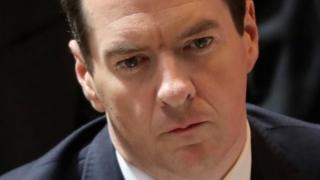 Image copyright
Image copyright
PA
Parliament’s sleaze watchdog is to review its guidance on MPs’ second jobs in the wake of George Osborne’s appointment as the editor of the London Evening Standard.
The Committee on Standards in Public Life insisted the move had not been solely prompted by the ex-chancellor.
Mr Osborne has faced calls to quit as an MP over his outside interests, which also include a role at a bank.
The Standards Committee was set up in 1995 following corruption scandals.
It does not have the power to block individual MPs from taking extra jobs – but it could change their code of conduct on outside interests.
The Commons standards committee is separately looking at a possible crackdown on MPs working while the Commons is sitting, which could scupper Mr Osborne’s latest career move.
And a third committee is investigating whether Mr Osborne’s new role is a conflict of interest with his former job as chancellor.
The Advisory Committee on Business Appointments (ACOB) – can advise former ministers not to take up new jobs for up to two years if it deems them to be a reward or favour – but it has no formal powers to block appointments.
ACOB has cleared Mr Osborne’s other new roles, while advising him not to use insider knowledge and contacts gained at the Treasury.
Osborne’s jobs
Image copyright
PA
- MP for Tatton: Paid £74,962 a year
- Editor, London Evening Standard: Paid £200,000, according to reports
- Adviser, BlackRock Investment Institute: Paid £650,000 a year
- Chair, Northern Powerhouse Partnership: Unpaid
- Kissinger Fellow at the McCain Institute: £120,212 stipend to cover travel and research costs
- Washington Speaker’s Bureau: Paid nearly £800,000 for engagements since July
Mr Osborne shocked the media and political worlds when he announced he would be working four days a week as editor of the London newspaper – despite a lack of journalistic experience – at the same time as being MP for Tatton, in Cheshire.
He has argued that it is important for the Commons to include people with “different experiences”.
He is far from the only MP to have outside interests – more than 100 MPs do other work apart from representing their constituents, from occasional TV appearances and speeches to running a farm or working as a doctor, dentist, company director or lawyer.
Standards in Public Life committee chairman Lord Bew said he had been considering reviewing what the Code of Conduct for MPs should say about second jobs for some time.
He called on the public to submit their views on the issue – adding that second jobs had to be within “reasonable limits”.
Second jobs are currently deemed “OK” by the committee if voters know about them “at the moment of the election,” he said.
The committee’s longstanding position was that it was “not entirely desirable” to have a class of professional politicians with no experience of other occupations, said the peer.
But he added: “It is clear that the public’s attitude has shifted on this matter and is more negative about it, although I can tell you from the letters we receive that the public is still divided on this issue.”
MPs may face new rules on second jobs}

